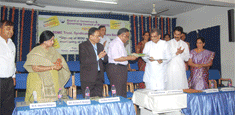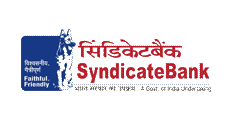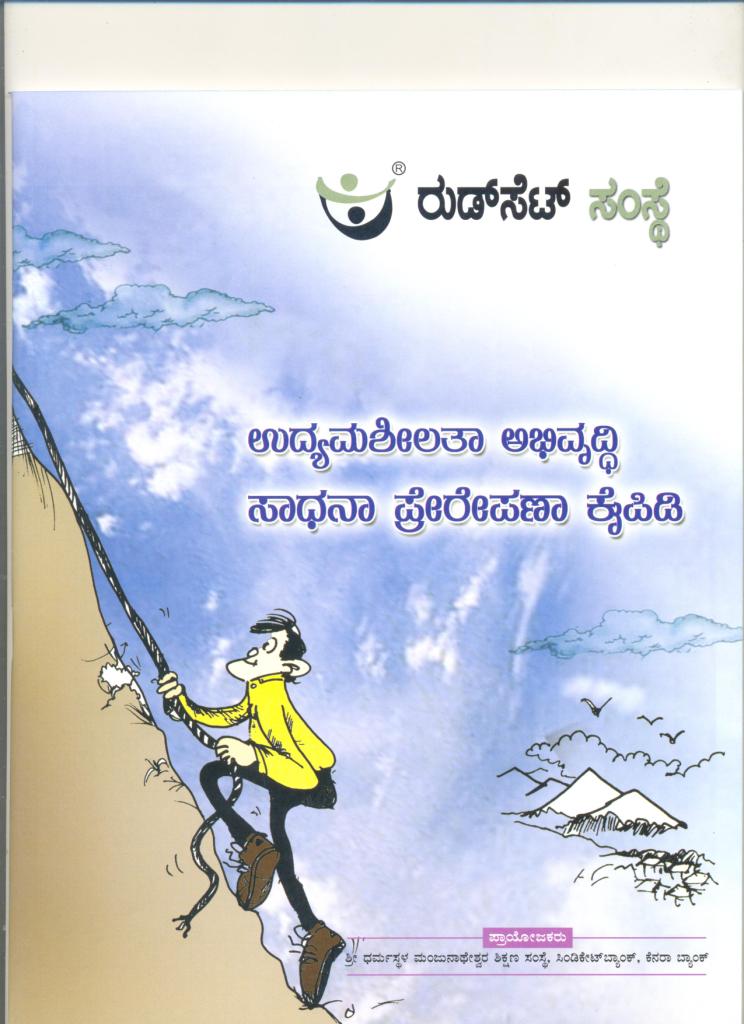Unique Features of RSETIs
- Supported by leading Nationalized Banks.
- Free training with free food and accommodation.
- Skill coupled with EDP inputs
- Short term training with long term follow up / Escort services for a period of 2 years.
- Campus approach with unique training methodology
- Excellent facilities for hands on training
- Variety of training programmes to suit the local needs
- Practical orientation, rigorous training and extended hours of learning
- Past trainees becoming trainers and imparting training.
- High settlement rate of 70 % of trained youths.
- The youths who have started Micro Enterprises are earning in the range of Rs. 2500/- to 30000/- per month. In good number of cases, the earning has crossed Rs. 50,000 per month.
- Employment generation by settled trainees in the range of 1 - 50 persons.
- Identification & selection of right candidate for the right course.
- Campus and practical approach.
- Use of simulation exercises, group discussions, role plays during training period.
- Field visits & experience sharing with role models.
- Interactions with Bankers /Govt. Officials.
- Supply of AMT Manual to trainees
- Trainees preparing and presenting MILLY everyday
- Each Institute coming out with Annual Activities Report
Resource Persons:
Directors of the RSETIs, the officer deputed from sponsor banks, possess rich experience in Rural Development. These officers supported by in-house faculty will handle EDP inputs such as behavioural inputs, managerial inputs, banking, launching formalities etc. Besides this, the expert practitioners i.e., Guest Faculties in the respective field, who provide their services out of social concern, impart skill training.
Course Modules:
Training modules ofRSETIs are so designed that the Entrepreneurship Development is achieved through Human Resource Development. The course modules structured out of practical experience, research and experiment facilitate development of the necessary skills in a systematic manner in a short period. The training module as followed in RUDSET Institutes which has been accepted as standard modules by SIDBI, NABARD, Department of Industries and Commerce, KSWDC etc. is followed in all RSETIs. These course modules are reviewed on an ongoing basis and revised and updated.
Training Methodology:
The widely acclaimed effectiveness of RSETIs training is attributed to its unique training methodology. Through structured psychological exercises, the participants are stimulated to shed inhibitions and develop interest in learning. Besides lecture sessions, behaviour simulation games, exercises, field visits, hands on experience, interface with supporting system, group discussions, case study etc. are effectively used in the training. Most importantly all the training sessions are conducted in vernacular languages only.
| Click To Enlarge Image | |||
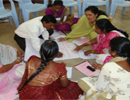 |
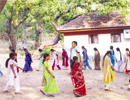 |
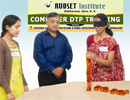 |
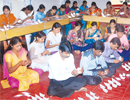 |
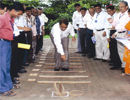 |
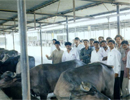 |
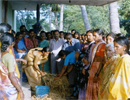 |
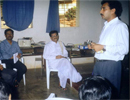 |
Committed staff and training atmosphere:
The committed workforce of the Institute successfully maintains a conducive atmosphere for learning. Cordial trainer-trainee relationship, discipline, guidance for personality development and socialisation with fellow trainees offers excellent scope for effective learning.
A typical day for a trainee at RSETI
| Sl.No. | Activity | Time |
| 1 | Rising up | 05.30 AM |
| 2 | Freshening | 05.30 to 06.00 AM |
| 3 | Yoga | 06.00 to 07.00 AM |
| 4 | Shramadan Gardening Upkeep of premises, class rooms and dormitories | 07.00 to 08.00 AM |
| 5 | Getting ready and Breakfast | 08.00 to 09.15 AM |
| 6 | Assembling in the class room | 09.25 AM |
| 7 | Prayer | 09.30 to 09.35 AM |
| 8 | Presentation of MILLY – Most Important Lessons Learnt Yesterday Presentation by 3 participants at random for five minutes each and then briefing by the Director for 10 minutes | 09.35 to 10.00 AM |
| 9 | Sessions on behavioural, Achievement motivation and other EDP inputs | 10.00 to 11.15 AM |
| 10 | Tea break | 11.15 to 11.30 AM |
| 11 | Skill based training session by a Guest faculty/Expert | 11.30 AM to 01.30 PM |
| 12 | Lunch break | 01.30 to 02.30 PM |
| 13 | Tea break | 04.00 to 04.15 PM |
| 14 | Skill based training session by a Guest faculty/Expert | 04.15 to 06.15 PM |
| 15 | Free time / play time | 06.15 to 07.00 PM |
| 16 | Director/faculty visiting the class to elicit feedback on the days activity and also for counseling | 07.00 to 08.00 PM |
| 17 | Dinner | 08.00 to 09.00 PM |
| 18 | After dinner, extra sessions by Guest faculty for clarifications or sorting out problems in acquiring skills and writing of MILLY which enables extended hours of learning followed by rest in the Dormitory (Sleep) | 09.00 PM onwards |





